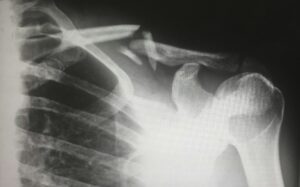Table of Contents
ToggleWhat Is a Lien on a Personal Injury Case?

The topic of medical liens is often overlooked when discussing personal injury cases. However, if you have an ongoing personal injury dispute in Los Angeles, California, it is crucial you understand how a medical lien on a personal injury settlement impacts the money you receive.
What Is a Medical Lien on a California Personal Injury Settlement?
A medical lien gives a healthcare provider or the hospital the right to receive payment for services from a personal injury claim. There are two basic types of medical liens:
Medical Lien Through an Insurance Policy or Public Health Benefits
Many insurance companies have clauses in their insurance policies that create a lien on personal injury proceeds. The clauses are often referred to as subrogation rights.
It also applies to health care expenses paid by Medicare and Medicaid. The Medicare Secondary Payer Act (MSPA) is a federal law allowing agencies to pursue repayment for personal injury awards and settlements.
When your health insurance company pays medical bills related to your personal injury claim, it has a medical lien on any proceeds you receive for a personal injury settlement. Before you receive money from your personal injury case, the provider must be reimbursed for its payments.
Medical Lien Agreements
A medical lien can also be created by signing an agreement with a hospital, medical facility, or healthcare provider. The agreement is a legally binding contract.
The medical provider agrees to provide health care in exchange for the promise of payment from your personal injury case. If you lose your personal injury case, you are responsible for paying the medical bills.
Medical liens and hospital liens can help accident victims receive the healthcare they need after an injury. However, doctors and hospitals are not required to enter into a medical lien.
Some physicians and healthcare providers will not accept a medical lien. If the provider will not accept a medical lien and you do not pay the bill, the provider can turn the account over to a collection agency.
How Much Can a Provider Take From My Personal Injury Settlement for a Medical Lien?
If you signed an agreement with the medical provider, the healthcare professional is entitled to full reimbursement for their services. Therefore, they could demand the total of their medical bills.
However, subrogation rights for health insurance providers are different. California has several laws that limit how much a health insurance provider can take from a personal injury settlement for subrogation liens. The laws only apply to the subrogation rights of insurance companies. Those laws include:
California Civil Procedure §3040
CCP §3040 limits how much a health insurance company can take from your personal injury settlement. Your health insurance provider is restricted to recovering the lesser of:
- One-half of the total personal injury settlement if the person was not represented by a lawyer;
- One-third of the total personal injury settlement if the person had an attorney representing them; OR,
- The total cost of the medical services provided.
If the provider was paid a flat amount for every patient they treat (called capitation), the cost is capped at 80% of what providers pay in other cases. If the insurance company does not use capitation, the cost is the amount of the medical bills paid.
Common Fund Doctrine
The Common Fund Doctrine prohibits insurance companies from benefiting from subrogation claims if they did not help the victim recover money for their personal injury claim. Suppose a person hired a lawyer to file a personal injury lawsuit. The person wins the lawsuit and receives compensation for their damages.
The health insurance company asserts its subrogation rights for reimbursement of medical bills it paid related to the claim. However, the insurance provider cannot receive reimbursement without paying a portion of the person’s attorney’s fees. In other words, the health insurance company cannot benefit if it did none of the work to recover compensation from an at-fault party.
Made Whole Doctrine
Accident victims have the right to be “made whole” by a party who caused their injuries. In other words, they have the right to receive compensation for all damages they incurred because of another party’s negligence or intentional torts.
However, an accident victim might not receive compensation for all damages from an at-fault party. In that case, the Made Whole Doctrine protects the victim from a health insurance provider taking money from a settlement that is lower than the victim’s damages.
Many insurance contracts have language that excludes the Made Whole Doctrine to allow insurers to exercise their subrogation rights. A lawyer might be able to challenge these clauses.
Are Medical Liens Negotiable?
An experienced Los Angeles personal injury lawyer works to lower the amount you pay for medical liens and subrogation claims by negotiating payments to the lienholders. An attorney understands the laws limiting the amounts some lien holders may collect from your proceeds and how to present compelling arguments for lower payments. Seek legal advice before you accept a personal settlement offer to protect your right to fair compensation.
Contact Our Personal Injury Law Firm in Los Angeles, CA
If you were injured in an accident in Los Angeles, CA or you lost a loved one and you need legal assistance, please contact us to schedule a free consultation. One of our Los Angeles personal injury lawyers at M&Y Personal Injury Lawyers will get in touch with you soon.
M&Y Personal Injury Lawyers – Los Angeles Office
4929 Wilshire Blvd Suite 960,
Los Angeles, CA 90010
866-864-5477
M&Y Personal Injury Lawyers – Downtown Office
350 S Figueroa St Suite 276
Los Angeles, CA 90071
(877) 751-8953




